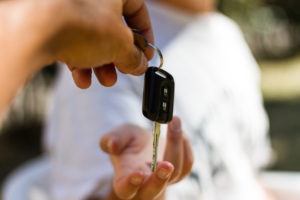 Witnesses to the Christmas morning danger of an erratic driver in West Kelowna did the right thing by calling 911.
Witnesses to the Christmas morning danger of an erratic driver in West Kelowna did the right thing by calling 911.
Police found him as he was pulling into a driveway. Turns out he had 2 ½ times the legal limit of alcohol in his system.
Of course, this wasn’t the first time he’s driven drunk. One internet statistic (who knows how accurate it is) is that collectively one million miles are driven by impaired drivers before one person is arrested.
If it’s the first time he has been caught, he might face a fine and lose his driving privileges for a period of time.
Had he killed someone that Christmas morning, we would be calling for his head, disappointed by the lack of “eye for an eye” justice delivered by our justice system.
I have previously given my opinion that we need to demonize the impaired driving itself, not the horrific consequences.
We need to cut down on that million mile statistic.
It’s the disease (public attitudes that lead to / allow for impaired driving occurring) we need to treat, not the symptom (life taken in an impaired driving crash).
How many people in this fellow’s life have been aware of his impaired driving behaviours and have done nothing to stop him?
Perhaps you, yourself, have committed never to drive impaired. How do we add the commitment that you will never stand by to allow someone else to drive impaired?
How about the proactive commitment never to be a part of social interactions involving alcohol unless proactive steps have been taken to ensure sober rides home.
I confess that am not there yet. I don’t keep track of what people drink. I will ask a friend, with concern in my tone, if he or she is ok to drive and I trust their response.
That’s not enough, of course.
Who is likely to respond:
“Oh, right. Now that you’ve asked me directly, I admit that I might be over the legal limit and will call myself a cab”.
Maybe you have committed to pay the cab fair for anyone who needs it. Is that enough?
Who is likely, at the end of the evening, to say “I failed to manage my alcohol consumption and am going to take you up on your offer to pay $50.00 to get my loser-ness home”?
Somehow, we need to take the “human component” out of it.
I don’t think it would be offensive at all to ask everyone, as they leave your home, to blow into a breathalyzer machine. “Would you do this for me, just to give me peace of mind?”
How do I get my hands on a reliable breathalyzer machine? Can anyone help me? Are RCMP-utilized roadside screening devices available for purchase? If not, why not?
I suspect they’re expensive. Might it be a helpful public (tax) investment to subsidize their purchase?
In the meantime, I am going to try my best to do better to prevent impaired driving that is within my direct control. I invite you to offer me your ideas to help me (and others) with that.
–
If you enjoyed this column, you might also enjoy reading Paul’s contrast of impaired driving and impaired driving causing death.

0 Comments